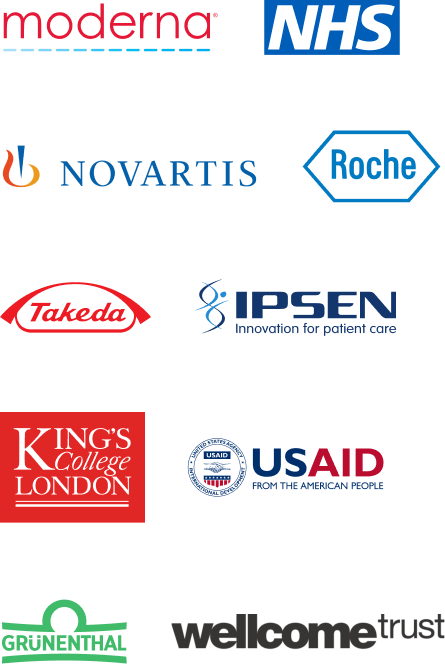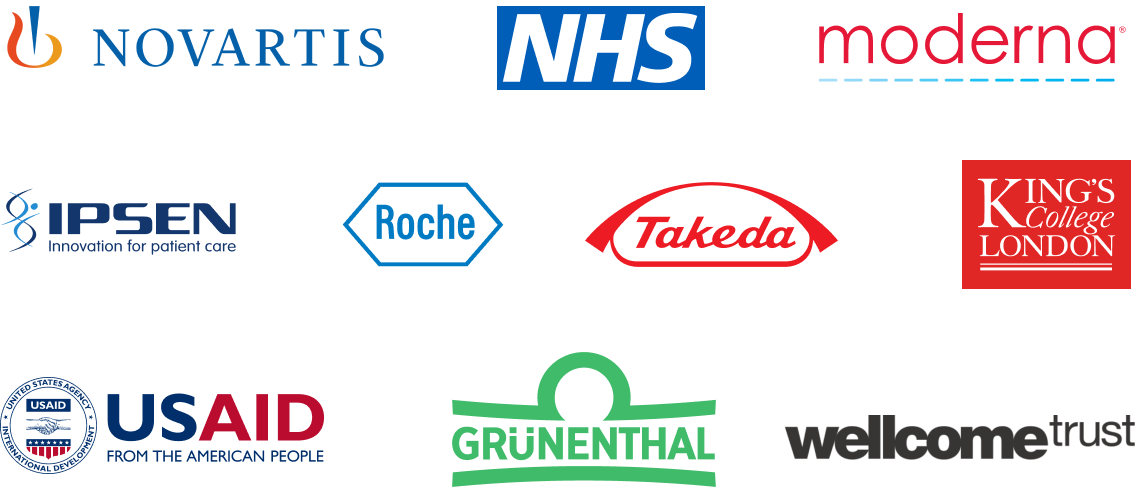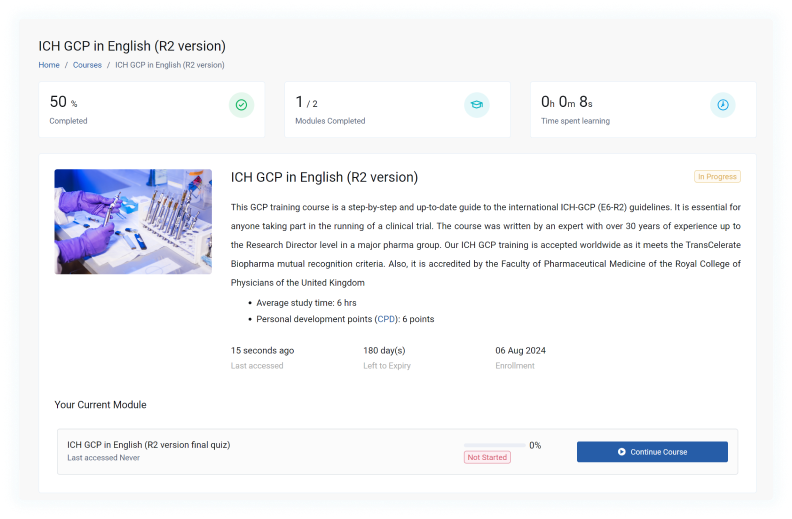Course Syllabus
- Introduction
- What is GCP?
- Why is ICH GCP Important?
- The Principles of ICH GCP
- Additional Learning Points
- Documentation and Version Control
- Quality Assurance (QA)
- Key Resources
- Introduction
- Responsibilities of the CA
- Responsibilities of the IEC
- Subject Informed Consent Forms (ICF): Part 1
- Subject Informed Consent Forms (ICF): Part 2
- Composition, Functions, Operations, Procedures, and Records
- Introduction
- Investigator Responsibilities
- Investigator Qualifications and Agreements
- Adequate Resources
- Medical Care of Trial Subjects: Part 1
- Medical Care of Trial Subjects: Part 2
- Communication with IRB/IEC
- Compliance with the Protocol
- Investigational Medicinal Products
- Randomisation Procedures and Un-blinding
- Informed Consent of Trial Participants
- Informed Consent of Trial Participants: The Consent Discussion
- Informed Consent of Trial Participants: Obtaining Consent Subjects Who Cannot Read or Write
- Informed Consent of Trial Participants: Obtaining Consent of Minors and “Mentally Incompetent” Subjects
- Informed Consent of Trial Participants: Obtaining Consent and Incapacitated Subjects
- Informed Consent of Trial Participants: Updating Consent
- Records and Reports: Introduction
- Records and Reports: Study Site Files
- Records and Reports: Updates & Amendments
- Records and Reports: Source Documents
- Records and Reports: Financial Information
- Records and Reports: The Case Record Form
- Records and Reports: Recording Subject Data
- Premature Termination or Suspension of a Trial
- Progress Reports and Final Reports by Investigator
- Archiving
- Introduction
- Quality Management: Part 1
- Quality Management: Part 2
- QA and QC (Quality Assurance and Quality Control): Part 1
- QA and QC (Quality Assurance and Quality Control): Part 2 – Standard Operating Procedures (SOPs)
- QA and QC (Quality Assurance and Quality Control) – Contracts and Agreements
- Contract Research Organisations: Part 1
- Contract Research Organisations: Part 2
- Trial Design
- Trial Management and Data Processing: Part 1
- Trial Management and Data Processing: Part 2
- Trial Management and Data Processing: Part 3
- Electronic Data Systems
- Record Keeping
- Investigator Selection: Introduction
- Investigator Selection: Permissions
- Investigator Selection: Responsibilities
- Investigator Selection: Compensation
- Financing
- Notification/ Submission to Regulatory Authorities
- Gaining CA Approval in the EU
- Confirmation of Review by IRB/IEC
- Information on Investigational Medicinal Products (IMPs)
- Manufacturing, Packaging, Labelling, and Coding Investigational Products: Part 1
- Manufacturing, Packaging, Labelling, and Coding Investigational Products: Part 2
- Supplying and Handling Investigational Products
- Record Access
- Audit and Inspection
- Noncompliance
- Premature Termination or Suspension of a Trial
- Clinical Trial/Study Reports
- Multicentre Trials
- Introduction
- Monitoring: Part 1
- Monitoring: Part 2 – Monitor Responsibilities
- Monitoring: Part 3 - The Monitoring Visit
- Monitoring: Part 4 – Verification of Investigational Medicinal Products (IMP)
- Complying with the Protocol, Amendments, SOP and Guidance
- Verifying Informed Consent
- The Case Record Form (CRF) and Source Documents
- Verifying Subject Data
- Errors
- Closing out the Monitoring Visit
- The Monitoring Report & Plan
- Quality Management - Centralised Monitoring
- Fraud and Misconduct
- Introduction
- Adverse Drug Reaction Reports: Part 1 – Adverse Events (AEs)
- Adverse Drug Reaction Reports: Part 2 – Serious Adverse Events
- Adverse Drug Reaction Reports: Part 3 – Suspected Unexpected Serious Adverse Reactions (SUSARs)
- Adverse Drug Reaction Reports: Part 4 – Adverse Events of Special Interest
- Adverse Drug Reaction Reports: Part 5 – Periodic Safety Reports
- Adverse Drug Reaction Reports: Part 6 – Reporting Decision Tree
- Introduction
- Protocol Structure and Content
- Introduction
- Investigator Brochure Structure and Content
- Introduction
- Essential Documents
- Archiving
- Documents to be Present Pre-Study
- Documents to be Present During the Study
- Documents to be Present Post-Study
- Glossary & Abbreviations
- Useful Reference Documents List
Our GCP certified customers


Good Clinical Practice (GCP) training is a vital educational programme designed to equip clinical research professionals with the necessary knowledge and skills to conduct
high-quality clinical trials. This comprehensive course covers the internationally accepted guidelines set forth by the International Council for Harmonisation (ICH).
The key objectives of GCP training include:
-Safeguarding the rights, safety, and well-being of human participants
-Upholding the accuracy and reliability of clinical trial data
-Fostering uniform, top-tier practices across all facets of clinical research
Whitehall Training's Good Clinical Practice Course thoroughly explores these crucial areas, offering participants a robust grounding in both the theoretical principles and practical applications of GCP. Our course ensures that learners gain a comprehensive understanding of the ethical and scientific standards essential for conducting clinical trials to the highest standards.
For those engaged in clinical trial research, obtaining GCP certification is essential.
If you're keen to broaden your knowledge of the field, GCP certification offers significant benefits, including:
- Alignment with global standards
- Boosting the reliability and calibre of research
- Safeguarding the rights and wellbeing of trial participants
- Opening up career opportunities in clinical research
Whitehall Training's Good Clinical Practice Course not only provides you with the necessary certification but also imparts practical knowledge for effectively implementing GCP principles in your daily work. This combination of theoretical understanding and hands-on application makes our course particularly valuable for professionals in the field.
A broad spectrum of professionals within clinical research find GCP certification crucial:
- Lead and Associate Investigators: Those with primary responsibility for overseeing and conducting trials at research facilities.
- On-site Trial Team: This encompasses research coordinators, study nurses, and additional personnel involved in the day-to-day management of clinical trials.
- Trial Sponsors and CROs: Individuals responsible for the overall planning, commencement, and documentation of clinical studies.
- Regulatory Body Representatives: Officials tasked with supervising and assessing trial compliance with established standards.
- Ethics Committee Members: Professionals who scrutinise and endorse trial protocols to ensure ethical conduct.
- Staff at Research Institutions: Those ensuring that institutional research aligns with international benchmarks.
- Researchers Funded by National Health Bodies: All team members engaged in nationally funded clinical trials.
The Whitehall Training Good Clinical Practice Course is tailored to accommodate this varied audience, offering both universal GCP principles and role-specific guidance.
Moreover, the course proves beneficial for individuals aiming to enhance their research capabilities and refine their approach to clinical trial operations.
Our GCP training programme is a comprehensive guide to the international ICH-GCP (E6-R2) guidelines, essential for anyone involved in clinical trials. It's designed to meet the training requirements for participation in international studies and is available in multiple languages.
Crafted by an industry veteran with over three decades of experience, including a tenure as Research Director at a major pharmaceutical company, this course offers in-depth knowledge and practical insights. The Faculty of Pharmaceutical Medicine of the Royal College of Physicians of the United Kingdom has accredited our programme, underscoring its quality and relevance.
We've developed the course with a focus on clarity and visual appeal, making it easy to navigate and understand. The content is structured to allow straightforward cross-referencing with the ICH-GCP E6 document, enhancing its utility as a learning tool.
In addition to English, we offer the course in several other languages, including German, Bulgarian, French, Italian, Japanese, Polish, Portuguese, Russian and Spanish. We've also created region-specific versions tailored to the regulatory frameworks of Australia, the UK, the US, France, Germany and Latin America.
Upon completion, participants can earn 6 CPD points, adding value to their professional development. The course combines theoretical knowledge with practical application, drawing from the author's extensive industry experience to provide a well-rounded understanding of Good Clinical Practice.
Indeed, our GCP course has received certification from the Faculty of Pharmaceutical Medicine at the Royal College of Physicians. This esteemed organisation is the professional body representing pharmaceutical physicians in the United Kingdom and has been establishing stringent research standards since 1989.
The certification of our course by such a respected institution serves as a testament to its quality. It demonstrates that our training meets the exacting standards set by both the industry and academia, providing you with a qualification that is widely acknowledged in the field.
The cost of GCP certification can vary based on several key elements:
- Official approval: Has the course received accreditation from recognised bodies?
- International compliance: Does the training meet ICH standards, enabling participation in global clinical trials?
- Content relevance: Is the material current and authored by industry professionals?
- Duration of availability: For how long can students access the course materials?
At Whitehall Training, our GCP course is priced at £79, reflecting its comprehensive offering:
- Recognised accreditation: The Royal College of Physicians has awarded our course 6 CPD points.
- Global trial readiness: Our training adheres to ICH E6(R2) guidelines, preparing researchers for international clinical trials.
- Expert-led content: Lucy Parker, our GCP specialist with over 10 years of experience leading research in major institutions like the NHS, has crafted the course material.
- Unlimited access: We support ongoing professional development by providing lifelong access to course resources.
Are you purchasing for multiple team members? A 10% discount is automatically applied at checkout for orders of 5 licences. For larger group bookings, please contact our team to discuss tailored pricing options.
Indeed, some GCP training options are offered free of charge, but it's important to be aware of their potential drawbacks:
- The content may be of lower quality, lacking accreditation and possibly not reflecting the most current standards
- These courses typically don't provide an official certificate, which is often necessary for conducting clinical research
That being said, these no-cost options can serve as a useful introduction to GCP principles for those seeking a basic grasp of the concept. However, for professionals requiring comprehensive, accredited training that meets industry standards, investing in a quality course like Whitehall Training's Good Clinical Practice Course is advisable. Our course ensures you receive up-to-date, accredited content and the necessary certification to participate in clinical research activities.
Whitehall Training's Good Clinical Practice (GCP) course offers a robust educational experience, focusing on the crucial aspects of conducting ethical and scientifically rigorous clinical trials. The programme is structured to accommodate learners across various proficiency levels, from those new to GCP to experienced professionals seeking to refresh their knowledge.
The curriculum encompasses a wide range of essential topics, including:
- The evolution and core tenets of GCP
- Key stakeholder duties in clinical trials
- Ethics and participant consent procedures
- Study protocol development and compliance
- Managing and reporting safety concerns
- Ensuring data quality and integrity
- Navigating regulatory landscapes
- Proper documentation and archiving practices
- Handling investigational medicinal products
- Effective site management and oversight techniques
Our course employs a variety of engaging e-learning techniques to enhance the educational journey:
- In-depth explanatory materials
- Authentic industry scenarios and case studies
- Engaging quizzes to reinforce learning
- Practical illustrations of best practices
- Reflective exercises for personal development
This comprehensive approach ensures that participants gain a thorough understanding of GCP principles, equipping them with the knowledge and skills necessary for success in the clinical research field.
Acquiring your Good Clinical Practice certificate involves a simple two-step procedure:
- Work through our engaging, interactive course materials to complete the educational component.
- Take the online final assessment.
Feeling apprehensive about the GCP test? There's no need for concern. The assessment is merely a necessary step to confirm your readiness for research participation. Should you not pass on your first attempt, you can easily revisit our comprehensive resource library to reinforce your understanding of any areas that require improvement, then make another attempt at the exam.
Our Good Clinical Practice course is structured to ensure participants not only absorb the material but can also implement it effectively in real-world clinical research environments. To achieve this, we've incorporated various evaluation methods throughout the course:
Continuous Learning Checks:
As you progress through each module, you'll encounter interactive quizzes and scenario-based exercises. These serve to solidify key concepts and allow you to measure your comprehension along the way.
Comprehensive Final Evaluation:
The course concludes with an in-depth examination that thoroughly tests your understanding of GCP principles and practices. This assessment covers all major areas explored in the course, including:
- Ethical considerations in clinical studies
- Regulatory compliance and requirements
- Key roles and responsibilities within clinical trials
- Ensuring data integrity and quality control
- Proper handling of safety reports and adverse events
Practical Skills Assessment:
Some questions in the final evaluation are crafted to assess your ability to apply GCP principles to realistic clinical trial situations, ensuring you're prepared for real-world challenges.
To guarantee that learners are fully equipped to conduct their trials, passing the final evaluation is a requirement for obtaining GCP certification.
We understand that everyone learns at their own pace, which is why you can attempt the final evaluation as many times as needed. This approach ensures that all participants can achieve the necessary level of understanding to become GCP qualified.
Our Good Clinical Practice (GCP) course is crafted to cater to a diverse group of professionals engaged in clinical research. Whilst prior knowledge of clinical research can be advantageous, it's not essential for enrolment. We've thoughtfully structured the content to suit various experience levels and roles within the clinical trial field.
This training is particularly beneficial for:
- Research Nurses
- Clinical Trial Managers
- Principal and Sub-Investigators
- Clinical Research Coordinators
- Quality Assurance Specialists
- Data Managers and Biostatisticians
- Pharmacists involved in clinical studies
- Regulatory Affairs Professionals
- Ethics Committee Members
- Sponsors and Contract Research Organisation (CRO) staff
Whether you're embarking on your clinical research journey or seeking to update your existing knowledge, this course offers a thorough exploration of GCP principles and their real-world application. The content is designed to be accessible and relevant, regardless of your current level of expertise in the field.
Yes, our Good Clinical Practice course is entirely web-based, providing learners with unparalleled convenience and adaptability. This digital format offers several benefits:
- Personalised learning speed: Students can navigate the course content at their own rhythm, aligning with their unique learning preferences and timetables. This approach enables a more thorough interaction with the material, free from the constraints of a traditional classroom setting.
- Round-the-clock availability: The course can be accessed at any time, from any internet-enabled device. Whether you're at your workplace, in your living room, or on the move, the course is always at your fingertips.
The ICH is a worldwide organisation that establishes guidelines for pharmaceutical research and development, with Good Clinical Practice (GCP) being a crucial aspect. Here are some essential points to understand:
- The ICH unites regulatory bodies and pharmaceutical industry experts.
- It develops globally accepted standards for conducting clinical trials.
- The ICH GCP guidelines aim to safeguard trial participants and ensure the reliability of data.
- These guidelines undergo regular updates, with ICH GCP E6(R2) being the most recent iteration.
Compliance with these ICH guidelines is mandatory for conducting proper clinical trials. This is precisely why we've developed our Good Clinical Practice course. It comprehensively covers all 13 fundamental ICH GCP principles, equipping you with the knowledge to carry out research that meets international standards.
The ICH Good Clinical Practice E6 (R2) guidelines represent the latest update to the international standards for conducting clinical trials. Published in 2016 by the International Council for Harmonisation of Technical Requirements for Pharmaceuticals for Human Use (ICH), these guidelines mark a pivotal development in the field of clinical research.
It's essential for clinical research professionals to be well-versed in ICH GCP E6 (R2) for several reasons:
- Ensuring compliance with international standards
- Protecting trial participants
- Ensuring reliable and valid data collection
The International Council for Harmonisation (ICH) Good Clinical Practice (GCP) guidelines are underpinned by 13 essential principles that form the backbone of ethical and scientifically robust clinical research. These crucial tenets encompass:
- Conducting research ethically
- Ensuring benefits supersede risks
- Safeguarding participants' rights and wellbeing
- Providing comprehensive supporting information
- Developing protocols based on sound scientific principles
- Obtaining approval from Institutional Review Boards or Independent Ethics Committees
- Ensuring qualified medical oversight
- Engaging competent investigators
- Acquiring informed consent from participants
- Ensuring precise data collection and reporting
- Maintaining confidentiality
- Adhering to good manufacturing practices for investigational products
- Implementing robust quality assurance systems
The Whitehall Training Good Clinical Practice Course offers comprehensive instruction on these fundamental principles, equipping learners with the knowledge to effectively implement them in practical clinical research scenarios. Our course is designed to provide a thorough understanding of how these principles shape the landscape of clinical trials and guide ethical research practices.

